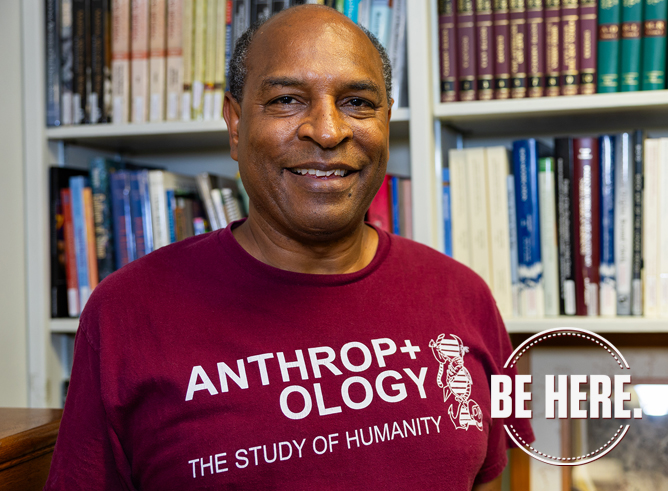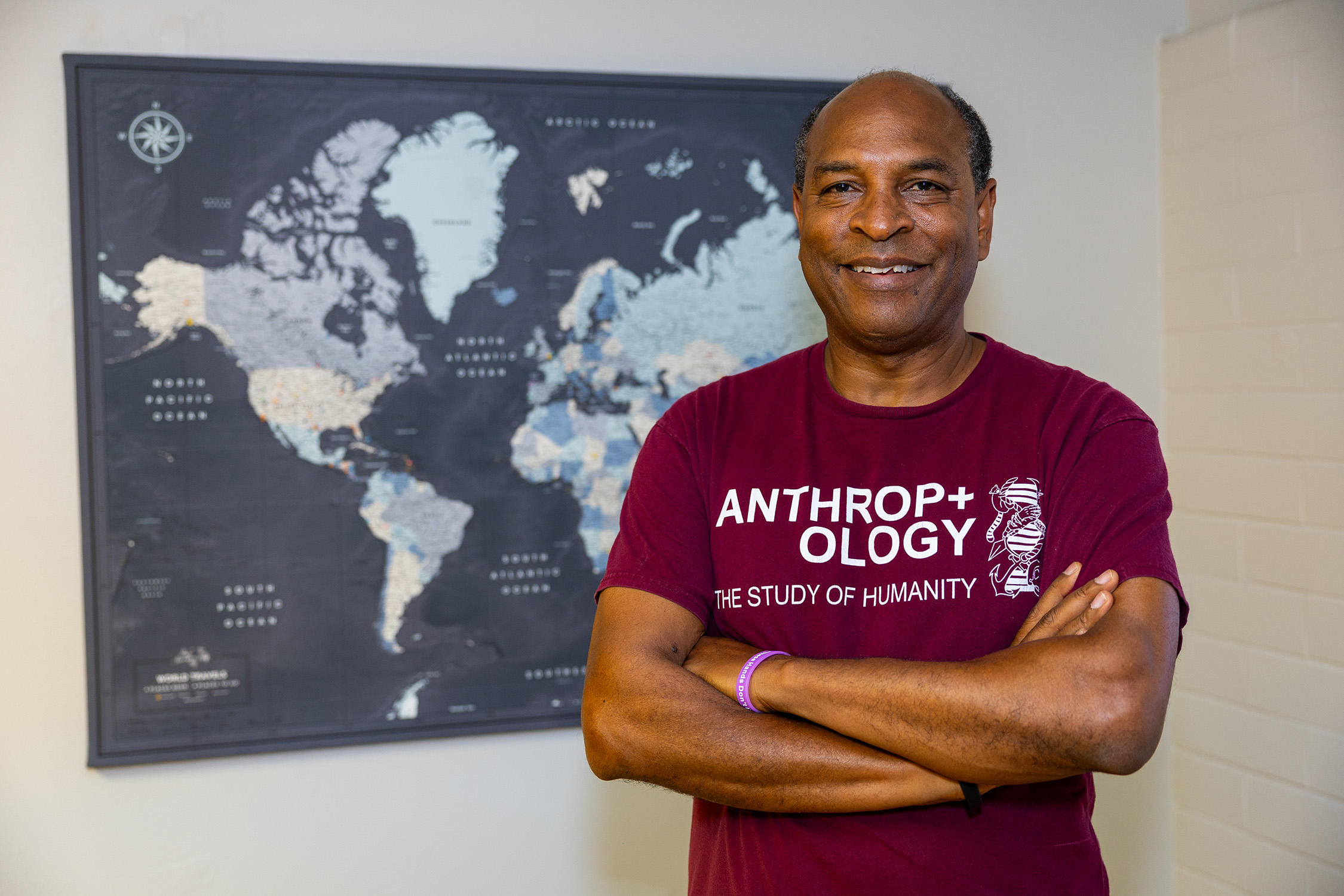
In 1984, Kevin Johnson earned his bachelor’s degree in mechanical engineering from Texas A&M University and embarked on a successful career in the petrochemical engineering industry that spanned more than three decades.
Despite obtaining master’s degrees in both sociology (2015) and cross-cultural studies (2017) from the University of Houston Clear Lake along the way, Johnson always felt like something was missing — something that dated back to his undergraduate days.
In 2019, Johnson’s journey took an intriguing turn when, driven by an unwavering passion for understanding cultures and human societies, he decided to return to his academic roots at Texas A&M to pursue a Ph.D. in cultural anthropology — a bold move demonstrating his dedication to learning and exploring diverse aspects of the human experience.
“After taking an undergraduate night course in sociology at Houston Community College in the summer of 1982, I became really interested in the study of people and cultures,” he said. “I received my master’s degree in sociology and did some work in cross-cultural studies and realized that I wanted to pursue a doctorate in something. I realized that anthropology has components of everything I had learned, and so I decided to pursue a doctoral degree in cultural anthropology.”
Understanding people helps you understand yourself. Do you want to find out how you’re different from someone? First, understand how you’re the same.
Johnson traces his nearly lifelong fascination with people, race and culture back to his childhood and the April 4, 1968, assassination of Martin Luther King Jr. Although he was only 6 years old at the time, Johnson recalls his confusion and a palpable sense of loss. Instead of giving in to those feelings, however, he chose to take a page out of King’s book and embrace his early desire to better understand culture and identity.
“Understanding people helps you understand yourself,” Johnson said. “Do you want to find out how you’re different from someone? First, understand how you’re the same.”
Once he had made the decision to pursue his Ph.D., Johnson says he quickly discovered that his alma mater was the ideal match for his chosen field of study.
"There were not a lot of options for obtaining a doctoral degree in cultural anthropology," he explained. "After conducting a large amount of research online and engaging in discussions with peers regarding Texas A&M's anthropology program, I concluded that this would be the ideal fit for my academic pursuits."

Fast forward to the fall of 2023, and Johnson has reached his fifth year in the Ph.D. program under the mentorship of Dr. Cynthia Werner, a professor in the Department of Anthropology who also serves as acting executive associate dean and associate dean for faculty affairs in the College of Arts and Sciences. Having successfully completed all his required courses, he has now shifted his attention toward gathering data for his dissertation, which focuses on addressing the research gap concerning the Black community.
“I’m observing and asking questions and compiling all of the data I need to collect for my qualitative research project,” Johnson added.
As for what’s next for the soon-to-be Dr. Johnson, he says that answer is still up in the air.
“In the words of Indiana Jones, ‘I am making this up as I go,’” he said. “I really don’t know what is next for me. I do see myself as possibly a researcher in the future or being a consultant or working for a nonprofit. My options are wide open. I've already had a fulfilling career in engineering, and now, I'm pursuing this as something I truly enjoy.”
Johnson hopes his story will shine a spotlight on cultural anthropology as well as the myriad possibilities available in the world for those who wish to pursue their educational goals at the Ph.D. level.
“If you are a prospective Ph.D. student, research the program by talking to other students, visit the university and get well acquainted with professors,” Johnson added. “Talk to professors about the research, readings and papers you have done. If you have studied yourself and your interest enough to know specifically what you want to research, find faculty and a team who can help you explore that question and find the answer or answers to that question.”

